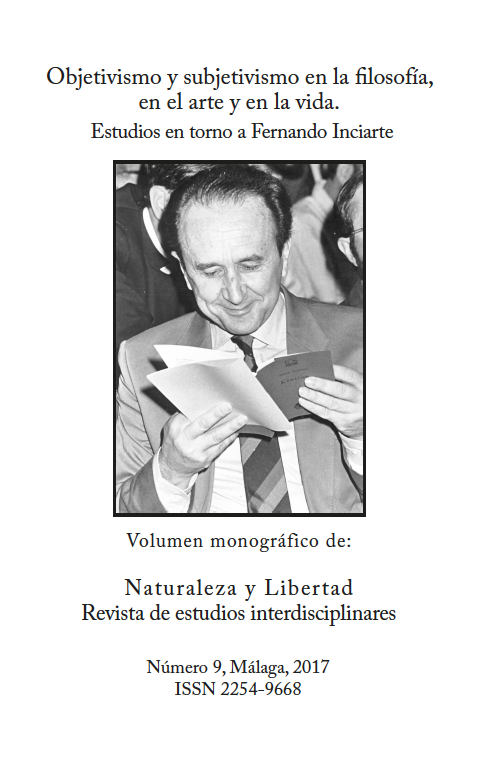La conciencia explicada desde la ciencia experimental. Método científico y subjetividad
DOI:
https://doi.org/10.24310/NATyLIB.2017.v0i9.6380Keywords:
método científico, objetividad, filosofía de la mente, psicología, consciencia, inteligencia artificial, robótica, interdisciplinariedad, literatura, lingüística, subjetividadAbstract
El método científico se centra en estudiar lo objetivo, lo empírico, lo cuantificable. Pero a la hora de explicar la consciencia humana, el método científico es insuficiente. La consciencia es de naturaleza subjetiva, no objetiva. El lenguaje y el arte, en especial el literario, suponen una vía alternativa para comprender la subjetividad. El estudio del lenguaje es un punto de vista multidisciplinar que atiende no solo a la materia, como hace el método científico, sino también a la forma. Este artículo sugiere un punto de vista más amplio para estudiar la consciencia humana.Downloads
Metrics
References
Francis Bacon, Novum Organum (1620), Tecnos, 2011.
Ignacio Maturana, From Being to Doing. The Origins of the Biology of Cognition, Carl Auer International, 2004.
Jean Jacques Rousseau, Ensayo sobre el origen de las lenguas (1781), Colihue, 2000.
Ludwig Von Bertalanffy, Robots, Men and Minds: Psychology in the Modern World, Georges Brazilier, 1967.
René Descartes, Discurso del método (1637), Gredos, 2011.
Rupert Sheldrake, A New Science of Life: The Hypothesis of
Formative Causation, Jeremy P. Tarcher, 1988.
Virginia Woolf, The waves (1931), Vintage Classics, 2016.
William Ross Ashby, An Introduction to Cybernetics, Filiquarian Legacy Publishing, 2012.
William Ross Ashby, Design For a Brain: The Origin of Adaptive Behavior, Nabu Press, 2011.
Wolfgang Wieser, Energy Transformations in Cells and Organisms, Thieme Publishing Group, 1989.
Wolfgang Wieser, Organismen, Strukuren, Maschinen. Zu einer Lehre vom Organismus, Fischer Bücherei, 1959.
Downloads
Published
How to Cite
Issue
Section
License
Those authors who have publications with this journal, accept the following terms:
1. Copyright and licensing information are clearly described on the journal’s web site: all content published in Naturaleza y Libertad is open acces without limit, and are subject to the Attribution-NonCommercial-ShareAlike 4.0 International (CC BY-NC-SA 4.0) license. The full text of which can be consulted at https://creativecommons.org/licenses/by-nc-sa/4.0/
2. It is the responsibility of the authors to obtain the necessary permissions for the images that are subject to copyright. The authors whose contributions are accepted for publication in this journal will retain the non-exclusive right to use their contributions for academic, research and educational purposes, including self-archiving or deposit in open access repositories of any kind. The electronic edition of this magazine is edited by the Editorial de la University of Malaga (UmaEditorial), being necessary to cite the origin in any partial or total reproduction.
3. This journal allows and encourages authors to publish papers on their personal websites or in institutional repositories, both before and after their publication in this journal, as long as they provide bibliographic information that accredits, if applicable, your posting on it.
4. In no case will anonymous papers be published.





18.png)













